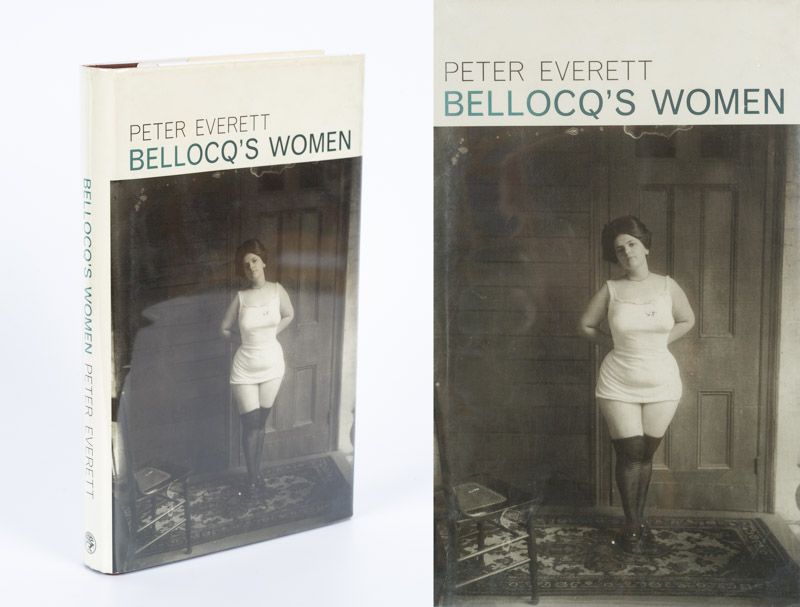Everett, Bellocq's Women.
Bellocq’s Women.
First Edition. London, Jonathan Cape, 2000. 21.5cm x 15cm. 249, (1) pages. Original Hardcover with original dustjacket. Very good condition with only minor signs of wear.
The ninth and final novel by Peter Everett who died in 1999, was inspired by a series of portraits of prostitutes taken by EJ Bellocq in 1912 in the red-light district of New Orleans. The photographs, undiscovered until the 1950s, capture the lush surroundings of Storyville brothels, which employed 2,000 women, made millions each year and were closed down by the city council shortly after the photos were taken. Bellocq’s image of a young, frank curvaceous woman on the book’s cover attest that his eye “caught the very bloom on things.” Although little is known of Bellocq, Everett builds a quirky and compelling account of what drew him to his subjects, beginning with his fascination with a murder trial in 1889, which involved the sexual abuse of a young girl. Everett retains a tone of cool reportage even when Bellocq visits his first brothel and fails to lose his virginity. “Ever afterwards, it was the girl’s frail hands washing his penis that Bellocq brought to mind when he was playing with himself.” The opening chapter is slightly jerky and distanced but the novel comes quickly into sharper focus as Bellocq sets off to Mexico to escape a domineering, religious mother.
Everett subtly conjures the light and shade that frame scenes in Bellocq’s mind: “The light from an open door cast a woman’s shadow”, beautifully suggests the photographer’s loneliness and foreshadows his subsequent passion. Years later, the lights dying out on a riverboat and the smell of dead geraniums recall the closing of the brothels and the end of Bellocq’s controlling force. There is something naive, patient and non-judgmental about the Bellocq Everett creates. One admirer comments that “he treated all the women the same way. They all seemed to live in an Inner Light—none was any more beautiful or ugly than another.” With his fine eye for period detail, for evincing the smells and sounds of New Orleans, Everett makes the world of Bellocq fantastically present. Bellocq’s relationships with women were unconventional, respectful and gently voyeuristic. Everett proposes that his daring, erotic photographs mark the most decisive and successful moments of his life—the portraits being the only way he could really “have” women in any lasting manner at all. (Cherry Smyth)
- Keywords: Books / Photography · Catalogue Six – Photography · Inanna Modern – Photography Books · John Minihan · John Minihan Archive · John Minihan Collection · Library & Collection Building · Photography · Photography – Rare · Photography and Prostitution · Photography Collection John Minihan
- Language: English
- Inventory Number: 40BB
© 2025 Inanna Rare Books Ltd. | Powered by HESCOM-Software












